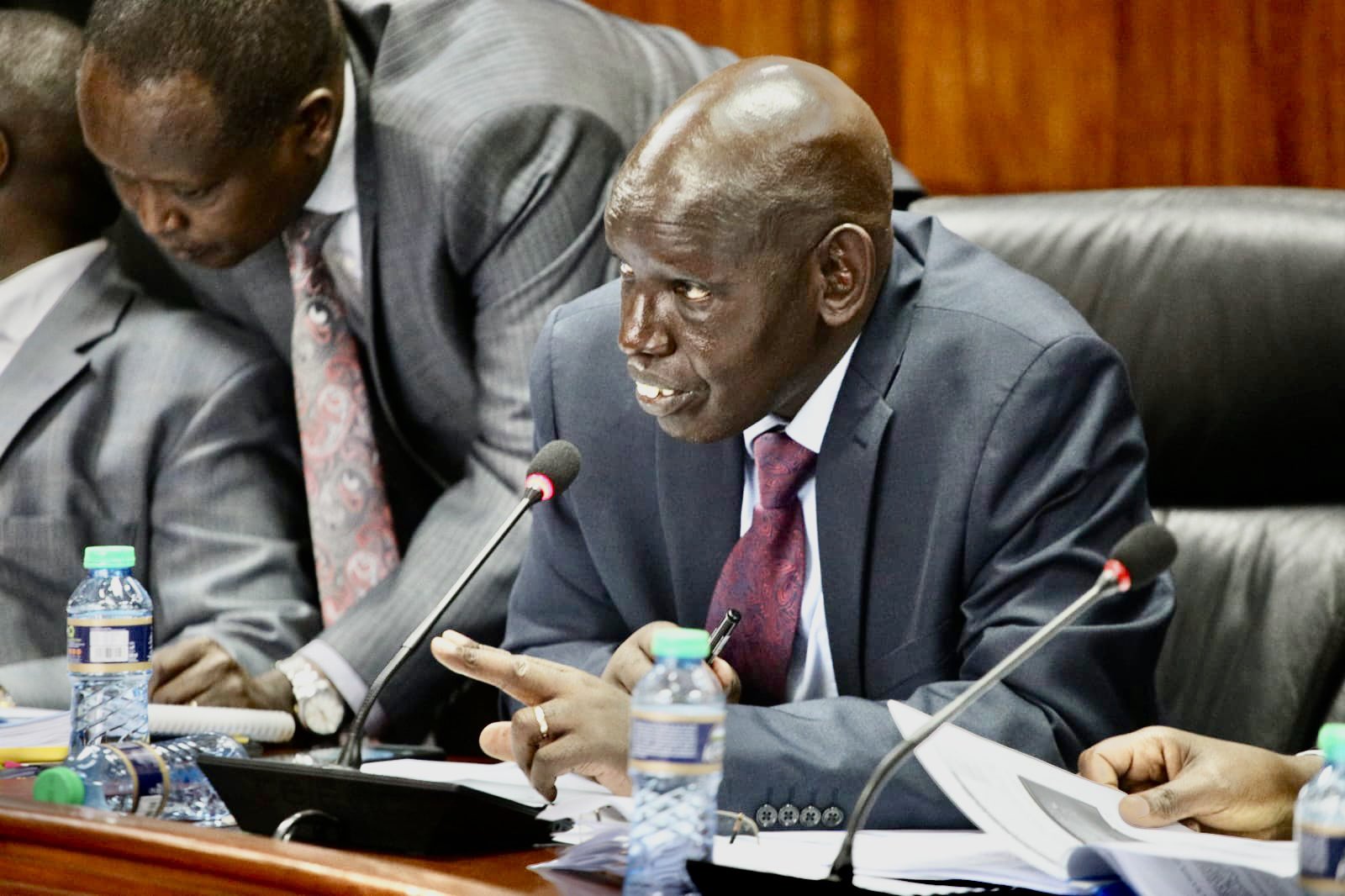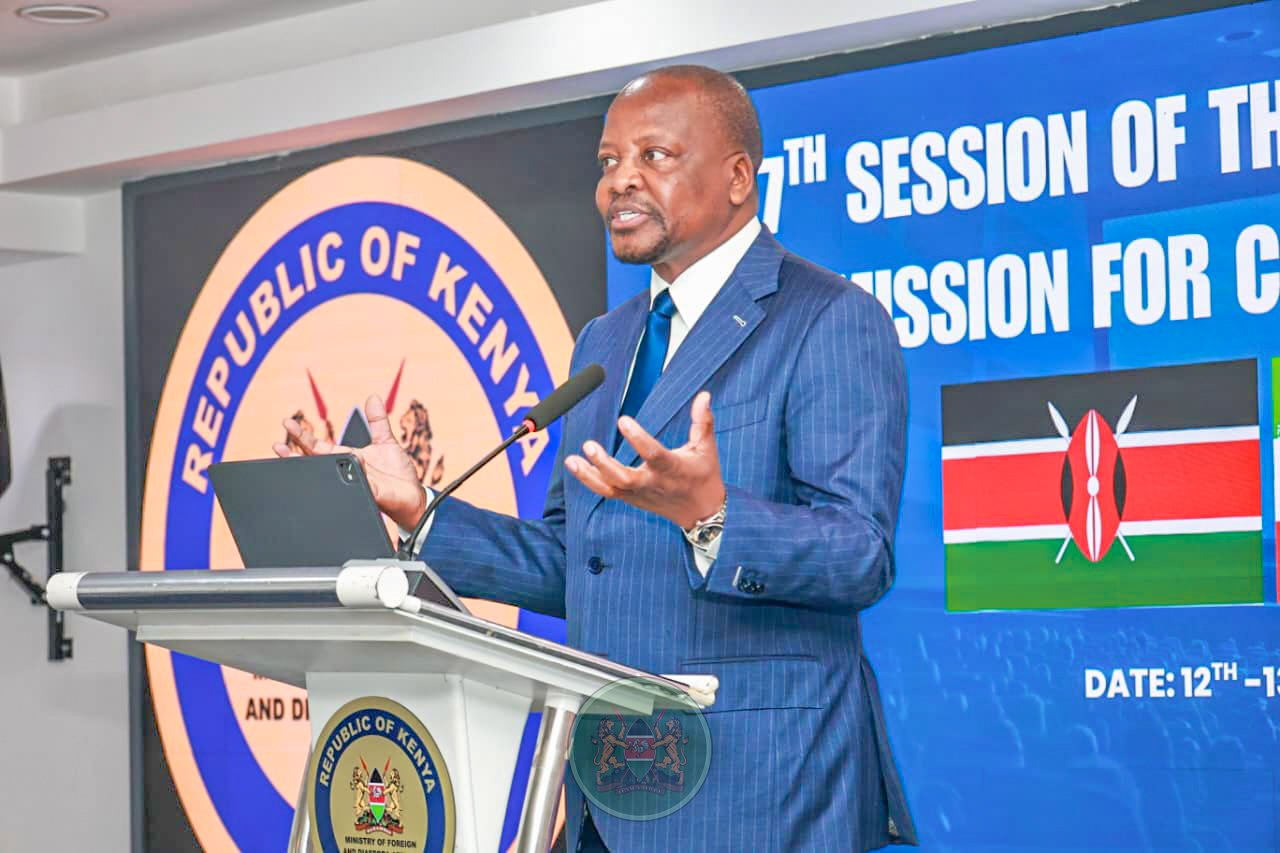Clash looms as Senate pushes for expanded powers in new Bill

According to Cheruiyot and Madzayo, the reforms are designed to strengthen devolution and ensure more effective joint roles for both Houses in lawmaking and budget oversight.
The National Assembly and the Senate risk reigniting their long-standing rivalry over the final say in constitutional amendments following the introduction of the Constitution of Kenya (Amendment) Bill of 2025 by the Senate.
Sponsored by Senate Majority Leader Aron Cheruiyot and Minority Leader Stewart Madzayo, the Bill seeks to significantly broaden the Senate’s role beyond its current county-government focus.
More To Read
- Kenyans invited to submit views on proposed population and development council
- Treasury, Senate threaten funding cuts over counties’ financial mismanagement
- MPs approve Bill to disburse Sh415 billion to counties
- Senate asked to investigate Health Fund inequality and costly Green Park underpass
- National Assembly gets reprieve after Court of Appeal stays decision cutting counties out of road fund
- Senate report reveals alarming neglect, drug shortages and overcrowding in county hospitals
It proposes giving the Senate equal powers with the National Assembly to vet and approve key State Officers, including Cabinet Secretaries and Principal Secretaries, by amending six Articles of the Constitution: 157, 215, 228, 229, 233, and 250.
The Bill also seeks to clarify and streamline the legislative process by allowing most Bills, except those concerning national revenue, to be introduced in either House of Parliament.
“The principal object of the Bill is to strengthen and secure devolution. The draft Bill seeks to provide a framework to achieve this purpose by clarifying the role of various organs and institutions established by the Constitution in the process of devolution,” the Bill stated.
According to Cheruiyot and Madzayo, the reforms are designed to strengthen devolution and ensure more effective joint roles for both Houses in lawmaking and budget oversight.
The two argue that it will improve accountability, enhance representation for counties and special interest groups such as women, youth, and persons with disabilities, and clarify the balance of power as set out in the Constitution.
“It seeks to refine the legislative process set out in the Constitution to ensure that both Houses of Parliament play an effective role in the legislative process; and ensuring that both the National Assembly and the Senate play an effective role in the budget-making process to safeguard the implementation of devolution,” it noted.
Legal experts, however, warn that the Bill may inflame the existing power struggle between the two Houses.
According to constitutional scholar George Oyoo, the rivalry between the two Houses stems from ambitions to assert greater authority, and the Bill might intensify tensions instead of fostering harmony.
“The framers of the Constitution never intended any rivalry between the two Houses of legislation. However, the need to be seen as powerful and having the last word between the National Assembly and Senate has been a hindrance to harmonious coexistence and smooth legislative roles,” argues Oyoo.
The Senate previously clashed with the National Assembly over legislation and authority, as well as over control of funds such as the National Government Constituency Development Fund (NG-CDF), with the Senate alleging exclusion by MPs.
The move to entrench NG-CDF in the Constitution followed recommendations by the National Dialogue Committee (Nadco), which Senators dismissed, accusing MPs of hijacking the process to legitimise the fund.
To counter the move, the Senate formed a special task force led by Cheruiyot and Madzayo alongside key Senators, Tom Ojienda, Okong’o Omogeni, Edwin Sifuna, and Hillary Sigei, to push back against what it termed as attempts to undermine its mandate and role as the ‘Upper House’.
Jill Cottrell Ghai of the Katiba Institute has, meanwhile, urged cooperation between the two Houses to avoid protracted political gridlock.
“Unfortunately, the National Assembly has found it hard to work well with the Senate. The courts have had to insist on more than one occasion that certain matters do concern county government and laws must go to the Senate,” said Ghai.
Top Stories Today













































